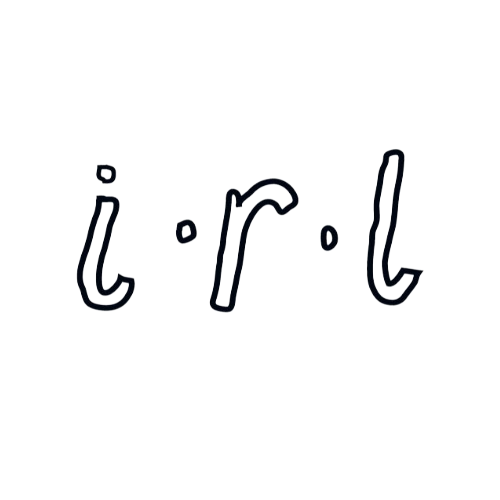Safety, Support and Accountability
The idea of a 'safer space' came out of recognising the impacts of trauma and the effects of abuse and harm. 'Safer spaces' were about acknowledging that violence and abuse occurs within all spaces. Over time, the language of 'safer spaces' was often co-opted, for example there was a tendency for white people to claim that they did not feel safe when they were challenged and felt uncomfortable about whiteness. We often do not look at what 'safety' means to us or the ways in which power, entitlements, oppressions and hierarchies determine whose safety is prioritised and in what way. When we call spaces 'safer' but they are safer for some than others, harmful behaviour that needs to be challenged is sometimes hidden rather than confronted.
We want IRL to be a space where people and each other are challenged, where privilege, power and oppression and our roles in them are acknowledged and explored. This will often be uncomfortable for people recognising their own entitlement and power. This is an important and necessary part of any change. Feeling uncomfortable in this way is not the same as feeling "unsafe".
IRL wants to prioritise the voices and experiences of those who are often silenced and made invisible or dismissed. We do not want people to experience behaviour that reinforces oppression and abuse. However we recognise that oppressive behaviour happens everywhere and that 'radical' or political spaces are no different. We want to support survivors of violence and oppression and respond when oppressive behaviour occurs in and around IRL.
We want IRL to be a space for people of varied and diverse backgrounds, social groups, and experiences. We are committed to providing a friendly and welcoming environment for all, especially with regard to race, gender, sexual orientation, ability, nationality and class. If you experience something in this space that crosses your boundaries or makes you feel hurt or uncomfortable please speak to a caretaker, event organiser or you can contact us via email or through the IRL website. We are committed to responding to all unacceptable behaviour.
Unacceptable behaviour include; intimidating, harassing, abusive, discriminatory, derogatory or demeaning words, gestures or actions by any participant in the IRL community, online, at all events and in one on one communications carried out in the context of IRL organising.
These are some examples of unacceptable behaviour. This list is by no means exhaustive.
Offensive comments related to gender, sexual orientation, disability, mental illness, physical appearance, body size, race, or religion
Unwelcome comments regarding a person's lifestyle choices and practices, including those related to food, health, parenting, drugs, and employment
Physical contact and simulated physical contact without consent or after a request to stop, unwelcome sexual attention, stalking or following, and continued one-on-one communication after requests to cease
Threats of violence, deliberate intimidation, incitement of violence towards any individual (this might not include responses to harm of unwanted behaviours stated above)
Sustained disruption of discussion
Pattern of inappropriate social contact, such as requesting/assuming inappropriate levels of intimacy with others, harassing photography or recording, including online activity for harassment purposes and publication of non-harassing private communication
Deliberate misgendering, deliberate "outing" of any aspect of a person's identity or history of trauma without their consent except as necessary to protect vulnerable people from intentional abuse

